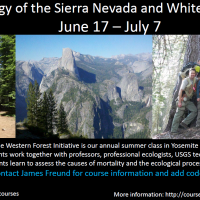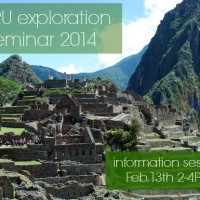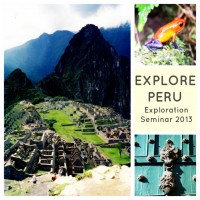 Threatened and Endangered Species Intern
Threatened and Endangered Species InternQuick Facts
Site Name: Camp Lejeune
State: NC
Location: Camp Lejeune
Headline: This position involves monitoring, protection and management of protected species, including sea turtles, red-cockaded woodpeckers, piping plovers, bald eagles, seabeach amaranth, rough-leaved loosestrife on a Marine Corps Base.
Position Code (PO): PO-00357246
Organization: Government
Agency: US Navy
Start Date: Sat, 06/15/2013
End Date: Fri, 06/13/2014 Dates are flexible 2-4 weeks
Fill Priority: Hot
Marine Corps Base, Camp Lejeune, North Carolina
This position is with the Threatened and Endangered Program on Marine Corps Base, Camp Lejeune. Main duties include protection, monitoring and management of threatened and endangered species. Camp Lejeune has approximately 140,000 acres of forest and 11 miles of relatively undisturbed beach, which are home to several endangered, threatened or otherwise protected species. Currently, threatened and endangered species on Camp Lejeune include the red-cockaded woodpecker, loggerhead and green sea turtles, piping plover, seabeach amaranth, and rough-leved loosestrife. Other protected species include nesting bald eagles, and coastal goldenrod. Duties include the following: – monitoring of nesting sea turtles (daily surveys from May-August, protecting nests from predators with cages)- protection of endangered species sites (signs, painted boundaries, roped off areas, etc)- protection of red-cockaded woodpecker cavity trees from fire (clearing vegetation from around the trees)- monitoring of endangered plants- locating and protecting shorebird (including piping plover) nests,- bald eagle nest monitoring- protecting potential shorebird habitat- GPSing locations of endangered species locations, boundaries, etc.In addition, there will be opportunities to work with the Base Forestry Branch (timber marking, prescribed burning), Land and Wildlife Resources (survey for game species and migratory birds, planting wildlife food plots, assist with wood duck boxes, etc.) and Archaeology.
The SCA is a nationwide force of high school and college-age volunteers who are committed to protecting and preserving the environment. But SCA doesn’t just talk the talk—SCA is conservation in action. Through internships, conservation jobs and crew experiences, SCA members are rising to meet today’s environmental challenges while gaining real, hands-on field experience. They complete projects in every conservation discipline—from archaeology to zoology—and everything in between.
Get Real Conservation Experience with SCA Expense-Paid Internships. For college and graduate students, as well as other qualified individuals, SCA internships provide the opportunity to work directly with resource management professionals, while gaining tangible skills, and contributing substantially to the preservation of our natural and cultural treasures. Ranging in length from 3 – 12 months, in all 50 states, SCA Internships are available throughout the year in all conservation disciplines. All positions are expense-paid (living stipend, housing, round trip travel) and most offer insurance and AmeriCorps Education awards.
Evan Escamilla |Alaska/Northwest Recruiter
SCA – Student Conservation Association
Office 1265 South Main Street | Suite 210 | Seattle, WA 98144




 Threatened and Endangered Species Intern
Threatened and Endangered Species Intern
